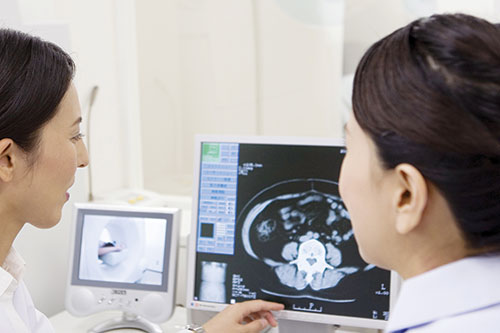Global Successes Systematic Identification and Diagnosis for Patients with Unidentified Conditions
INITIATIVE ON RARE AND UNDIAGNOSED DISEASES (IRUD)

Japan has a long history of tackling rare and intractable diseases (known locally as Nan- Byo). Building on this heritage, AMED’s IRUD is combining expertise and technology to develop a systematic approach to supporting patients with unidentified conditions.
These efforts have led to the construction of a nationwide medical research consortium dedicated to helping these patients receive diagnoses. The network enables primary healthcare clinics to collaborate with almost 200 general hospitals and more than 30 IRUD Clinical Centers, where complex cases can be reviewed by multi-disciplinary
IRUD Diagnosis Committees made up of medical specialists and clinical geneticists.
This process is supported by four IRUD Analysis Centers which administer genetic tests, including whole-exome or whole-genome sequencing. Their findings are fed back to the committees in order to support ongoing diagnosis discussions.
The clinical and genetic data gathered in each case is stored in a globally compatible patientmatching system, enabling data to be exchanged, upon consent, with domestic and overseas medical organizations in compliance with existing rules.
As a result, similar cases can be compared with a broader pool of patients, increasing the chances of successful diagnoses.
Looking ahead, IRUD will continue to strengthen its nationwide network, placing emphasis on the microattribution of all IRUD collaborators - from local primary care physicians and nurses to patients, their family members and those supporting affected individuals.
In addition, working to fulfil AMED’s foundational role of global harmonization through valuable forums such as the International Rare Diseases Research Consortium (IRDiRC), IRUD will seek further data-sharing opportunities and ensure patients are given the best chance of receiving a diagnosis.
 Concept
Concept
Construct a comprehensive medical network and establish valuable clinical databases to improve the identification and diagnosis of rare and undiagnosed diseases.
 Progress
Progress
IRUD has enabled primary healthcare clinics to collaborate with almost 200 general hospitals and more than 30 IRUD Clinical Centers, which combine with a Data Center and 4 Analysis Centers to create a national network. In addition, a globally compatible patient-matching system has been established to store and share clinical and genetic data.
 Collaborators
Collaborators
National Center of Neurology and Psychiatry; National Center for Child Health and Development; Keio University; Yokohama City University; hundreds of related institutions and responsible individuals
Last updated 09/20/18

